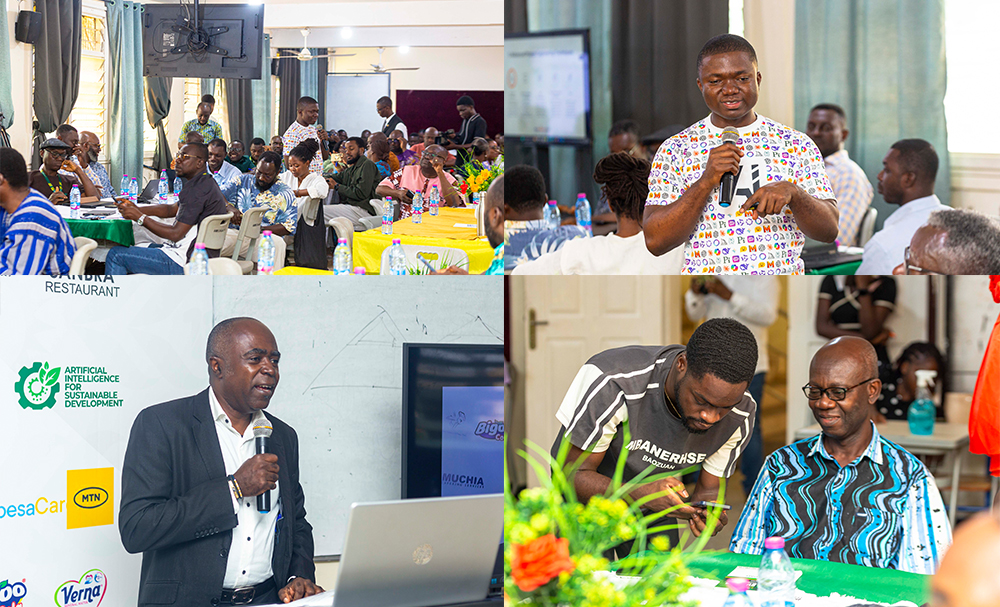The College of Art and Built Environment of the Kwame Nkrumah University of Science and Technology (KNUST), Kumasi is exploring practical applications of Artificial Intelligence (AI) in art, education, and built environment pedagogy while addressing the challenges of adoption and curriculum design for future-ready education.
The engagement, held as part of the 11th KNUST Summer School, brought together academics and facilitators to discuss how AI can enhance teaching, learning, and research across disciplines.
The workshop focused on applying AI in art, education, and built environment pedagogy, as well as the challenges of adopting AI and designing AI-enhanced systems and curricula for future practice.
Participants engaged in live interactive AI model sessions, metaverse learning experiences, and the use of automated grading tools, preparing them for a more immersive and innovative teaching and learning environment.
The College Provost, Professor John Tiah Bugri, encouraged participants to embrace the new era of artificial intelligence.
“When we generally look at intelligence, we have been working with real intelligence, and now we have to step back and look at the artificial stuff,” he said.
He emphasised the transformative potential of AI in accelerating teaching and learning processes.
“AI serves as a catalyst. It enhances what we do, and it is going to change the way we teach and learn,” he said.
Professor Dimitrios Vlachopoulos of the Rotterdam School of Management, Erasmus University, noted the varying levels of capability in AI usage and the challenges that come with it.
“Understand AI as something supportive and helpful. But at the same time, we need to recognise that there are big differences in the quality of use, the volume of use, and the knowledge around AI, among many other issues,” he said.
He called for consistency and collaboration in how lecturers apply AI within the institution.
“Professor A cannot say one thing, and then in Professor B’s class, you see another different thing. This shows students that there is no coordination or organisation, and the misuse of AI becomes easy,” he explained.
Professor Vlachopoulos urged lecturers to guide students to view AI as a tool that supports learning rather than a means to plagiarise.
“We need to help students understand how AI can enhance their learning journey, instead of using it to cheat, which may help them with a simple grade but adds nothing to skill development and competencies,” he said.
He also cautioned against sharing sensitive documents with AI systems to prevent data breaches.
“These actions happen because people do not really understand how dangerous and inappropriate it is to share important documents with AI,” he warned.
He further explained that using AI without proper criteria could lead to outcomes that are unsatisfactory or irrelevant to local contexts.
Professor Vlachopoulos called for inclusivity in AI education and access to resources.
“We need to make sure that everyone has access to the tools and resources we ask them to use. And if they don’t, they need proper training, it is our responsibility to ensure equal opportunities for all,” he said.
He concluded by advocating for continuous awareness programmes on AI across the university.
“All these awareness sessions should be an ongoing ritual at the institution, not just a one-day event or a single workshop,” he urged.

















